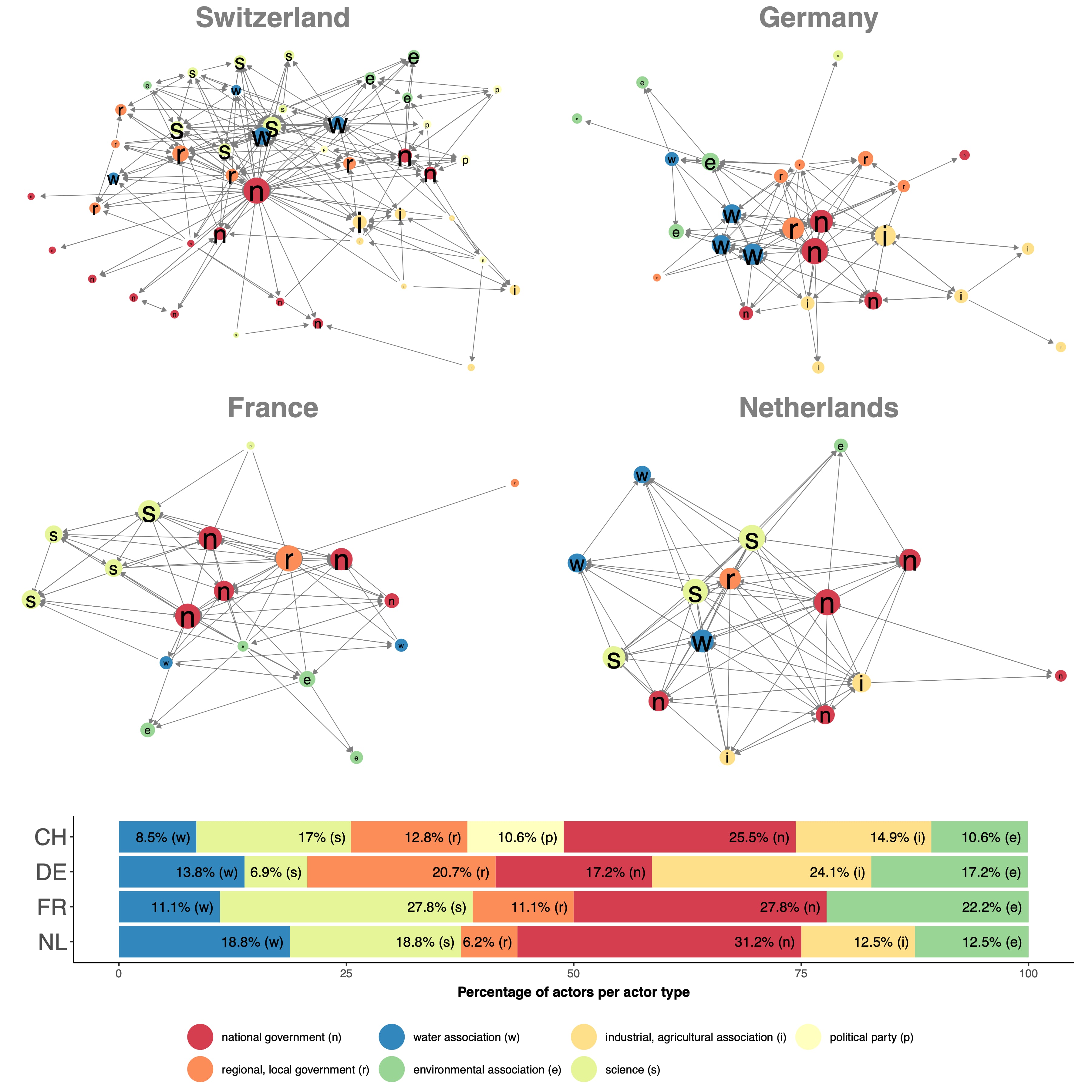Decision-Making Networks Across Political Systems
Florence Metz and Laurence Brandenberger
American Journal of Political Science (2022)
Check out our blogpost on the article here.
The article is available as open-access.
Abstract
Polities shape power structures and interaction patterns between actors in policymaking processes. Although the social fabric of interactions is key to successful policymaking, it remains unclear which relational structures are typically found across political systems. By adopting a network approach, we analyse differences in power structures and interaction patterns across four policy networks in German and Swiss consensual–federal, French majoritarian–unitary, and hybrid Dutch consensual–unitary democracies. Using survey data from 149 state and non-state actors, we fit exponential random graph models and calculate predicted probabilities to compare the four networks. Results show that the consensus democracies institutionalize neighbourhoods of networks where actors share power and collaborate with opponents. Our case of a majoritarian democracy illustrates power concentration with restricted access to competitors, limiting the need to interact and search for compromises with opponents. Findings allow future work to differentiate typical from atypical network structures, given the embeddedness into a political system.

